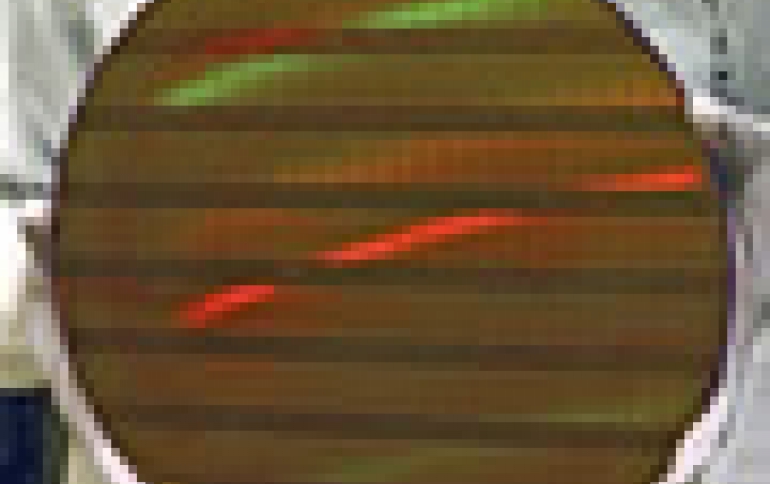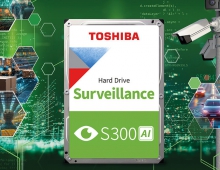
Toshiba, Others to Cooperate on 45-nano Chips
Toshiba and other Japanese chip makers on Tuesday scrapped a tentative plan to set up a microchip foundry but said they will standardize technology to make cutting-edge chips in a latest effort to join forces.
Toshiba, Fujitsu Ltd., NEC Electronics Corp.and Renesas Technology have agreed to set a technology standard for advanced chips with circuitry widths of 45-nanometres or finer, looking to possible mutual use and consolidation of their plants in the future.
Industry specialists have said Japanese chip makers need to join hands to regain competitiveness and better compete with larger rivals such as Intel Corp., Samsung Electronics Co. Ltd. and Texas Instruments Inc..
Finer circuitry means the chip can be smaller while data can be processed faster. It also cuts production costs per chip.
But costs for development and production equipment have risen as technology moves to ever-more intricate circuitry, making it difficult for chip makers to shoulder the burden alone.
A nanometre is one billionth of a meter. Most of the world's advanced semiconductor factories currently make chips with a circuitry width of 90 nanometres.
Following the announcement, Sony Corp., which is co-developing 45-nanometre chips with Toshiba and NEC Electronics, said the company will cooperate with the group of four chip makers.
In a related development, Toshiba, Renesas and Hitachi said they decided not to pursue their tentative plan to establish an independent microchip foundry.
The three companies set up a planning company in January to look into the feasibility of a semiconductor foundry, taking aim at a market dominated by Taiwan Semiconductor Manufacturing Co. Ltd. (TSMC) and other Taiwanese chip makers.
Microchip foundries such as TSMC and smaller United Microelectronics Corp. (UMC) make chips for other semiconductor makers on a contract basis.
The announcement came as little surprise since business daily Nihon Keizai Shimbun said earlier this month the project was likely to be scrapped due to expectations that such a venture would not make money.
Analysts said the new scheme, under which chip makers aim to cut costs without going through outright mergers, capital ties or setting up a joint plant, is likely to have a limited effect on boosting their competitiveness.
Industry specialists have said Japanese chip makers need to join hands to regain competitiveness and better compete with larger rivals such as Intel Corp., Samsung Electronics Co. Ltd. and Texas Instruments Inc..
Finer circuitry means the chip can be smaller while data can be processed faster. It also cuts production costs per chip.
But costs for development and production equipment have risen as technology moves to ever-more intricate circuitry, making it difficult for chip makers to shoulder the burden alone.
A nanometre is one billionth of a meter. Most of the world's advanced semiconductor factories currently make chips with a circuitry width of 90 nanometres.
Following the announcement, Sony Corp., which is co-developing 45-nanometre chips with Toshiba and NEC Electronics, said the company will cooperate with the group of four chip makers.
In a related development, Toshiba, Renesas and Hitachi said they decided not to pursue their tentative plan to establish an independent microchip foundry.
The three companies set up a planning company in January to look into the feasibility of a semiconductor foundry, taking aim at a market dominated by Taiwan Semiconductor Manufacturing Co. Ltd. (TSMC) and other Taiwanese chip makers.
Microchip foundries such as TSMC and smaller United Microelectronics Corp. (UMC) make chips for other semiconductor makers on a contract basis.
The announcement came as little surprise since business daily Nihon Keizai Shimbun said earlier this month the project was likely to be scrapped due to expectations that such a venture would not make money.
Analysts said the new scheme, under which chip makers aim to cut costs without going through outright mergers, capital ties or setting up a joint plant, is likely to have a limited effect on boosting their competitiveness.





















